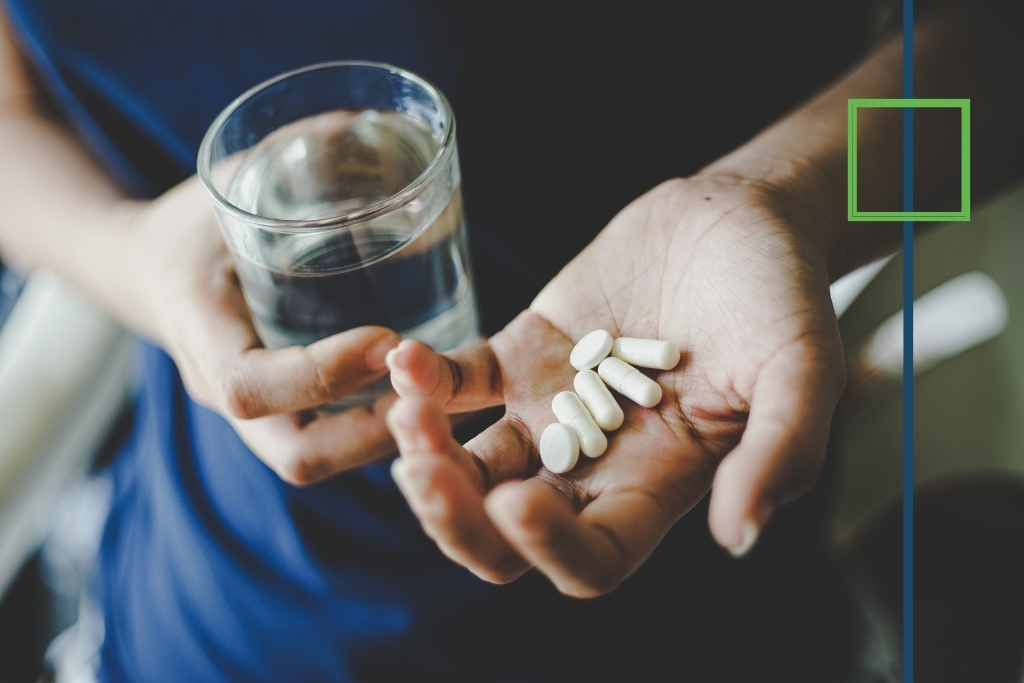What is an Addictive Personality Disorder?
An addictive personality is a personality that is more likely to become addicted to something. It is an informal term based on the idea that some people have a particular set of personality attributes that influence addiction and other problematic behaviors, such as alcohol and drug abuse or gambling.
A lot of people are dealing with what is known as an addictive personality disorder. It’s more common than you may think. And it’s more harmful than people may believe. Oftentimes, an addictive personality disorder leads to addiction.
An addictive personality is when a person has difficulty controlling their desire to participate in an enjoyable activity. Often, they quit one addiction only to have another take its place. A person can become addicted to many things besides illicit substances, such as sex, gambling, or food.
So is an addictive personality a disorder? Although it is a reasonably common concept, there is no scientific or medical definition of an “addictive personality” or “addictive personality disorder.”
What Are The So-Called Traits of an Addictive Personality?
According to the National Institute on Drug Abuse (NIDA) [1], no one factor can predict if a person will become addicted to drugs. Therefore, the notion that an individual could have an “addictive personality disorder” is based on false logic. Addiction is a very complex disease, and the chance of a person developing addiction will vary from person to person, regardless of their personality traits.
There’s no evidence or data to suggest that individuals with the traits mentioned below have a higher risk for addiction. However, that’s not to say that certain personality traits aren’t related to addiction. For instance, traits associated with borderline and antisocial personality disorders may be linked to a greater risk of addiction.
According to the National Center for Biotechnology Information (NCBI) [2], notable personality distinctions were found among different types of addiction. For example, neuroticism and impulsivity were higher across all addiction populations. Moreover, people with drug use disorders and those with compulsive sexual behavior were surprisingly similar, scoring lowest on the traits of agreeableness and conscientiousness.

Common Traits of an Addictive Personality Disorder
- Impulsivity or difficulty with impulse control
- Compulsivity or engaging in activities that may end in negative consequences
- Lack of personal goals
- Susceptibility to risky, impulsive, or thrill-seeking behaviors
- Failure to take responsibility for actions
- Low self-esteem
- Irritability or intense mood swings or irritability
- Lack of strong friendships or social isolation
- A close relative who struggles with addiction
- Mental health conditions
- A tendency toward obsessive or compulsive actions
What May Cause An Addictive Personality Disorder?
While an addictive personality is something of a myth, those who have a higher risk of yielding to addiction often share certain common traits. The nature of this link is unclear. Addiction can cause changes in the brain. It is not always clear whether the trait developed before or after addiction.
People often question, what causes an individual to have an addictive personality? Study shows that certain personality or behavioral traits can make someone more likely to develop an addiction [3]. Traits can change between addiction type and substance, or even by the age of the person. Certain traits have been associated with drug abuse or addiction in general, including:
Impulsivity
It is generally connected with a wide range of psychological problems, including addiction. Sometimes described as erratic spontaneous or behavior with little thought of the outcomes or consequences, impulsivity can lead to risky behaviors. Impulsive individuals are more likely to make sudden decisions without completely thinking through the long-term consequences first.
Risk-Taker or Sensation-seeking behavior
This trait is related to impulsivity in the sense that sensation-seeking people might be more spontaneous or also seek out risky situations to fulfill the need for new or varied experiences. Individuals who are risk-takers crave excitement. They want to feel a thrill. This can often be done in various forms, such as risky financial investments, criminal behavior, or dangerous physical activities.
Negative Affect
Negative affect refers to a set of unpleasant emotions, such as sadness and anger, that can lead to maladaptive behaviors, including addiction. Those with negative affect are more likely to abuse alcohol or drugs to cope with stress.

Negative Urgency
Negative urgency is how rashly a person responds to distress. Those with negative urgency who have difficulty managing stress in a healthy way are more likely to turn to substance abuse to cope.
Neuroticism
Individuals with high neuroticism usually respond to threats or challenges with negative emotions, such as sadness, anger, anxiety, and irritability. Research has revealed that people with high neuroticism are more likely to suffer from a substance use disorder [4].
Aggression
Aggression is defined by violent behavior and hostility toward others. Research shows it is positively correlated with online gaming addiction.
Disagreeableness
People who are disagreeable are more likely to be unfriendly, selfish, and uncooperative. Research has shown that a low level of agreeableness is correlated with substance abuse.
Narcissism
Studies have suggested a link between narcissism, or an inflated sense of self-importance, and online gaming addiction.
Tips to Overcome Harmful Addictive Personality Disorder
A person who is dealing with the effects of an addictive personality disorder may find it very hard to break out of the grasp of this disorder. It can be very challenging to fight the urges of compulsive behaviors, impulsivity, anxiety, and depression. Surmounting these difficulties is far from easy. However, that doesn’t mean that it cannot be done.
Most people feel that it is not possible to overcome addictive personality disorder. They feel that if you have these traits, you will inevitably struggle with addiction and will, most likely, never break free from these difficulties. Still, this is definitely not true.
A person can certainly become free from these problems through, dedication, commitment, and professional treatment. There are lots of ways in which a person can strive to overcome the effects of addictive personality traits. Here are some of them:
Talk to someone about it
Confiding about your problem to someone who can offer you help and conform would be a great relief. There will be times that your friends and family members will misunderstand what you’re going through. They may not understand the struggles you’re facing. Therefore, talking to them will help you to feel less isolated and alone, which are two things individuals usually feel when they’re dealing with an addictive personality disorder.
Get counseling and attend therapy
Therapy is a perfect place to talk to someone who understands and can offer guidance in handling the addictive characteristics in life. Therapy techniques like cognitive behavioral therapy (CBT) can help to identify and work through the triggers and underlying causes linked to the addictive personality disorder.
Hang out with other people
If the individuals within your circles are also grappling with the effects of an addictive personality disorder or they don’t support you to overcome the struggles in your own life, it is best to avoid spending time with them. Surround yourself with positive people who are genuinely concerned about your well-being and won’t enable harmful behavior in your life.
Strive to do what is good for you rather than what feels good for you.
Addictive personalities disorder is characterized by engaging in activities chiefly because they feel good. However, this kind of behavior can be problematic. Therefore, it is best to learn how to focus on doing what is best for your well-being and the health of those who love you.
Positive thinking
The way we think normally determines the way we behave. Through cognitive-behavioral therapy (CBT), a person can learn more about how to replace negative thought patterns with good and healthy ones. You will need to include these tactics in your everyday life, concentrating on the positives and spending time with compatible individuals. Sometimes, it will be really difficult to stay on the right path. Avoid becoming angry with yourself if you fail. Just shrug it off and keep going.

Get Help At We level Up Florida
If you or a loved one think that you may have an Addictive Personality Disorder, contact us today. At the We Level Up FL mental health facility, we provide utmost care with doctors and medical staff available 24/7 for life-changing and lasting recovery. We can provide clients with the tools, education, and therapy to return to a fulfilling and productive life.
Inpatient medical detox and residential primary addiction treatment may be available at our affiliated facility at Level Up West Palm Beach Rehab. For some primary behavioral health treatment clients, medical detox and or addiction rehab may be required first. If you have a co-occurring severe substance abuse diagnosis, please contact us prior to beginning inpatient mental health therapy. Treatment services may vary. Please call us to learn which treatment options are most suited for your individual needs.

